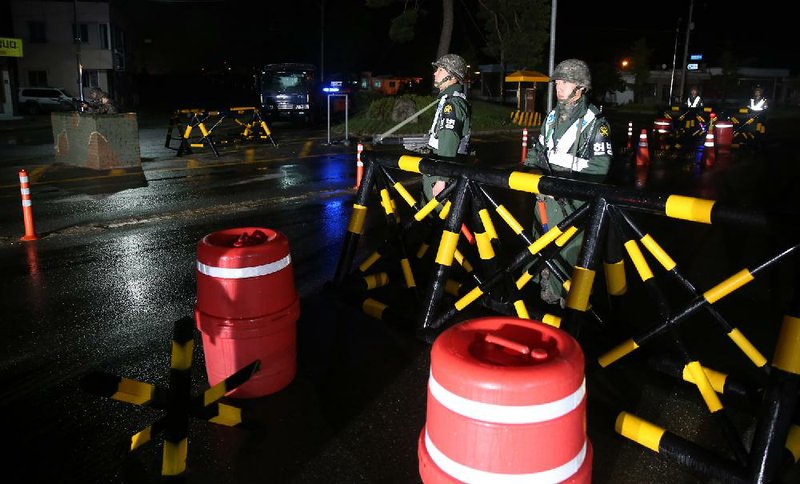SEOUL, South Korea -- A South Korean army sergeant killed five of his fellow soldiers and wounded seven others Saturday when he opened fire along the border with North Korea, military officials said.
The soldier, identified only by his surname, Yim, opened fire with his standard issue K2 assault rifle at an outpost in Gangwon province, east of Seoul, according to a Defense Ministry spokesman. He spoke on condition of anonymity because of department rules.
Yim, who was scheduled to be discharged from the military in September, fled with his weapon, but it wasn't clear how much live ammunition he had, the official said.
The shootings took place at a guard post of the 22nd South Korean Army Division, which patrols the eastern section of the heavily armed border with North Korea.
Defense official Kim Min-seok said today at a televised briefing that all of the wounded were expected to survive, although two were injured seriously. He said search operations were underway to find Yim, without elaborating.
Park Cheol-yong, the head of Madal village near the army division where the gunfire took place, said he warned villagers to stay in their houses.
It was not immediately known what drove Yim to kill his colleagues.
South Korea is still technically at war with North Korea because the Korean War ended in 1953 with an armistice, not a peace treaty, so the South pays attention to any sign of trouble or a lack of discipline in the ranks of its military.
The episodes highlight the challenge for South Korea in maintaining its 650,000-member military, a largely conscript force that is intended to deter aggression from the North.
Increasingly, the military's ranks are filled with young men who no longer consider their 21-month compulsory service a "sacred duty" but rather an inconvenient interruption of their civilian life and careers.
In the past, corporal punishment was more widespread but also more accepted, supported by a conviction that the country needed a disciplined military to protect it from the North. But South Korea's younger generation, accustomed to six decades of relative peace on the divided peninsula, tends to be more reluctant to tolerate the strict, often harsh, enforcement of hierarchy and seniority among enlisted men, a practice that has led to instances of brutality.
There was no indication that North Korea was involved, but tensions between the rivals have been high recently, with North Korea staging a series of missile and artillery drills and threatening South Korea's leader.
The Koreas have also traded fire along their disputed maritime border in the Yellow Sea.
Information for this article was contributed by Youkyung Lee and Jung-yoon Choi of The Associated Press.
A Section on 06/22/2014


